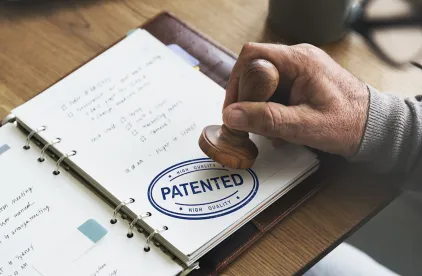On April 20, 2023, the United States Patent and Trademark Office (USPTO) announced several proposed rule changes that would have an impact on patent applicants, patent holders, and patent challengers. A common thread running through several of the rule changes is the requirement of increased disclosure from litigating parties, including disclosures of related parties, ownership interests, and all settlement agreements (and any related or collateral agreements) between the parties. While the proposed rule changes are subject to a public comment period, if implemented, they would (i) introduce several major changes to the process of challenging patents before the Patent Trial and Appeal Board (PTAB) and (ii.) significantly increase USPTO administrative fees.
Proposed Rulemaking Affecting PTAB Practice
The USPTO published in the Federal Register an Advance Notice of Proposed Rulemaking, introducing a number of proposed reforms to the rules of practice at the PTAB. The proposed changes could impact discretionary institution practice, petition word-count limits, and settlement practices for America Invents Act (AIA) proceedings at the PTAB, including inter partes review proceedings, which are frequently used in lieu of or as a complement to district court patent litigation. The USPTO posted a summary of the proposed changes on its website.
From time to time since the passage of the AIA in 2011, the USPTO has proposed and implemented changes to the PTAB’s rules of practice to try to achieve the AIA’s stated intent of providing a less-expensive alternative to district court litigation. These proposed rule changes represent another step toward that objective, by “protect[ing] those working to bring their ideas to market either directly or indirectly, while not emboldening or supporting economic business models that do not advance innovation.”
One of the proposed rule changes would expand the ability of PTAB Administrative Judges to enter discretionary orders denying institution of patent challenges by providing for an expanded set of circumstances in which discretionary denials are presumed appropriate under the rules, subject to conditions and exceptions for unique circumstances. Among the seven proposed circumstances, the proposed changes would allow for discretionary denials where: (i) a petition is filed by certain for-profit (e.g., non-practicing) entities, (ii) a petition challenges the patents of an under-resourced patent owner (particularly where the patent owner is trying to bring actual products to market), and (iii) a petition challenges a patent subject to ongoing parallel litigation in district court. Also, to evaluate whether discretionary denial is appropriate, and to ensure the integrity of PTAB proceedings more generally, the USPTO is considering increasing the disclosure requirements to determine potentially related parties, concealed ownership interests in the patents, and the existence of third-party litigation funding or other financial support.
The USPTO is also proposing to change the PTAB rules concerning the disclosure of settlement agreements reached to resolve USPTO proceedings. Under existing rules and law, parties must file any settlement agreements made in connection with the termination of a PTAB proceeding that has been instituted. The proposed rule changes would expand the filing requirement to include any “pre-institution settlement agreements (or understandings between the parties, including any collateral agreements referred to in such agreements or understandings).” Moreover, while the PTAB’s current practice is to permit parties to satisfy their statutory obligation by filing binding term sheets, the proposed rules would clarify that parties are required to file with the USPTO any subsequent settlement agreement. The USPTO noted that “[h]aving a depository of all settlement agreements in connection with contested cases, including AIA Proceedings, in the USPTO would assist the Federal Trade Commission (FTC) and the Department of Justice in determining whether antitrust laws were being violated.” Although in most circumstances the rules requiring filing of settlement agreements may not alter parties’ decision whether to proceed before PTAB, practitioners and their clients should be aware of this significant disclosure to the government of information most parties would consider confidential, particularly in large, multi-forum disputes with complicated and multifaceted settlement agreements.
Proposed Rulemaking Affecting Fees
The USPTO also announced an across-the-board increase to all patent-related fees. According to the USPTO, the proposed fee increases are necessary because the agency’s patent-related operating costs will exceed its patent-related fee revenues beginning in FY 2025. A number of factors contributed to the expected operating shortfall, including the 2022 passage of a law that significantly increased discounts available to entities that claim small or micro entity status. While the 2022 law sought to encourage greater innovation by up-start inventors and small companies, it created additional strain on the USPTO’s budget, which has already been negatively affected by current inflationary conditions.
The USPTO posted an Excel summary of the proposed changes on its fee setting and adjusting website. The magnitude of the proposed changes varies widely depending on the fee, but practitioners can expect typical utility filing and prosecution fees to increase by between 5-10%. Larger fee increases are proposed for design and plant patent cases, as well as for excess claim fees, terminal disclaimers, and other, less common fees such as requests for extension of patent term and requests for suspension of a USPTO action.



 />i
/>i

